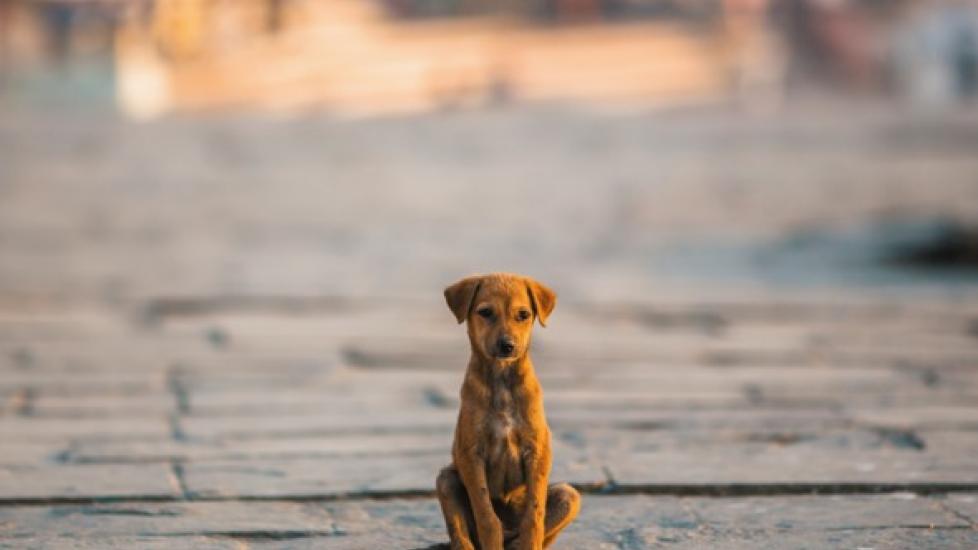Could Dogs Survive in a World Without Humans?
We love our dogs and cherish them as family members. We take them to the veterinarian’s office when they’re sick, buy them creature comforts and willingly pick up their poop. We’ve also become connected with our dogs on such a deep emotional level that it can be hard to imagine our lives without them.
When was the last time, though, that you considered whether dogs could live without us? Could our dogs survive without us providing them with food, shelter and love? Could they make it on their own in a world without humans?
To consider these questions, let’s first take a brief history lesson on dog domestication.
When and How Were Dogs Domesticated?
Dog domestication was an extremely important turning point in human history. However, there’s scientific debate on exactly when that domestication began; estimates range from about 10,000 to nearly 40,000 years ago.
It’s even suspected that dogs were domesticated twice—in Asia and in Europe. So, the time point at which the first domesticated dog came onto the scene is still not conclusively known.
In addition, multiple theories exist on how dog domestication happened. One theory is that early humans captured and raised wolf pups, eventually domesticating them. Another theory, known as “survival of the friendliest,” suggests that wolves domesticated themselves when early humans were hunter-gatherers.
What’s clear is that domestic dogs have been around humans for a long time. In this time, dogs have become highly skilled at understanding and interpreting human behavior.
Numerous studies have demonstrated just how attuned dogs can be to our emotions, facial expressions and daily routines. Therefore, it’s no surprise that our dogs know when we’re sad or anxious and can respond to us according to the tone of our voice or our body language.
What Would Dogs Do Without Us?
Domestication has led dogs to become dependent on humans for pretty much everything. They look to us to feed them, walk them, protect them and care for them when they’re sick. So, could they really survive in a world without humans? What would this world look like for dogs if all humans disappeared?
You could imagine that a world without humans would be pretty disorienting for a domestic dog—No more dog beds, food bowls, leashes, squeaky dog toys or belly rubs. No more obedience training, doggy play dates or trips to the vet’s office.
Essentially, dogs would be faced with a world in which they would have to completely fend for themselves to eat, stay safe and ultimately survive.
It’s likely that, with time, dogs would learn to adjust, survive and potentially thrive in a world without us. Besides, nearly 80 percent of the world’s dogs today are free-ranging; therefore, not having humans around wouldn’t matter much to most dogs.
Dogs Would Need New Survival Skills
Surviving without humans would require having some survival skills, such as forming relationships and alliances with other animals (even cats!), having an independent personality, being street-savvy, being able to rapidly adapt to changing conditions, and having a willingness to take some risks.
Size might matter, too: medium- to large-breed dogs could fare better than teacup-size dogs (like Shih Tzus) or giant breed dogs (like Great Danes).
Interbreeding With Other Animals Is Likely
Interbreeding with other animals, particularly coyotes and wolves, would also be important for dogs’ survival in a world without humans. Such interbreeding would produce offspring that could survive and thrive without humans and thus pass on survival genes to future generations.
Finding Shelter Would Be Trial-and-Error
Without human shelters, dogs would need to find places to live, such as burrows, that would provide natural protection from predators. This would take some trial-and-error as the dogs adjust to their new environment and develop their survival skills.
With all of the adjustments and skills required to survive in a world without humans, it’s possible that not all domestic dogs would be able to adapt. But those able to adapt would learn how to survive and even thrive in their new environment.
Let’s hope, though, that our best friends will not have to experience life without us any time soon.
Featured Image: iStock.com/DimaBerkut
